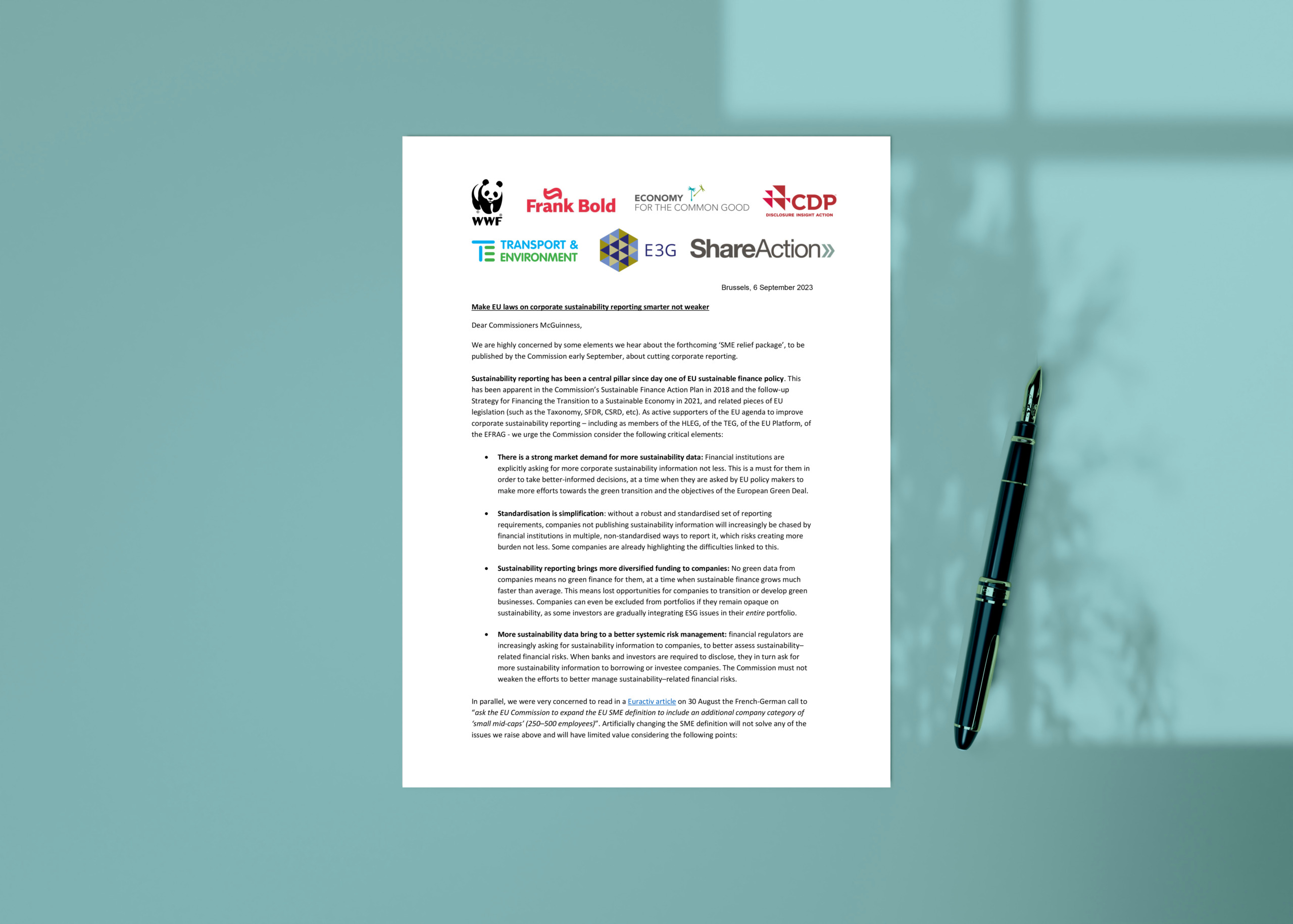
Make EU laws on corporate sustainability reporting smarter not weaker
Dear Commissioners McGuinness,
We are highly concerned by some elements we hear about the forthcoming ‘SME relief package’, to be published by the Commission early September, about cutting corporate reporting.
Sustainability reporting has been a central pillar since day one of EU sustainable finance policy. This has been apparent in the Commission’s Sustainable Finance Action Plan in 2018 and the follow-up Strategy for Financing the Transition to a Sustainable Economy in 2021, and related pieces of EU legislation (such as the Taxonomy, SFDR, CSRD, etc). As active supporters of the EU agenda to improve corporate sustainability reporting – including as members of the HLEG, of the TEG, of the EU Platform, of the EFRAG – we urge the Commission consider the following critical elements:
- There is a strong market demand for more sustainability data
- Standardisation is simplification
- Sustainability reporting brings more diversified funding to companies
- More sustainability data bring to a better systemic risk management
In parallel, we were very concerned to read in a Euractiv article on 30 August the French-German call to “ask the EU Commission to expand the EU SME definition to include an additional company category of ‘small mid-caps’ (250–500 employees)”. Artificially changing the SME definition will not solve any of the issues we raise above and will have limited value considering the following points:
- Mandatory sustainability reporting only targets 0.2% of EU companies.
- In the European Sustainability Reporting Standards (ESRS), the European Commission has already provided an exception for companies with less than 750 employees by allowing them to have a longer implementation timeframe.
- Sustainability reporting is affordable
Changing the SME definition would moreover undermine the political agreement reached on the personal scope of the Corporate Sustainability Reporting Directive, and erode credibility of the policy making process in the EU and chances of building a consensus in the future.
We believe that lack of transparency on sustainability is not the way forward. What we recommend instead that is to better support companies to report meaningfully on sustainability issues with no unnecessary burden:
- First, ensure consistency across the various EU reporting requirements, to avoid duplication and inconsistencies.
- Second, support and fund adequately the EFRAG, which is currently preparing technical recommendations for a (mandatory) Listed SME standard for a future Delegated Act under the CSRD, and a (voluntary) non-listed SME standard. Compared to the ISSB, the EFRAG is grossly lacking in budget and capacity.
- Third, provide more training and guidance to companies to help them understand what and how to report sustainability information. The EFRAG, mandated by the Commission, is preparing guidance for the first set of ESRS.
- Fourth, provide targeted subsidies to SMEs to incentivise them to develop meaningful sustainability reporting.
Read full letter and see all signatories

Image credits: @hidemaru / freepik





